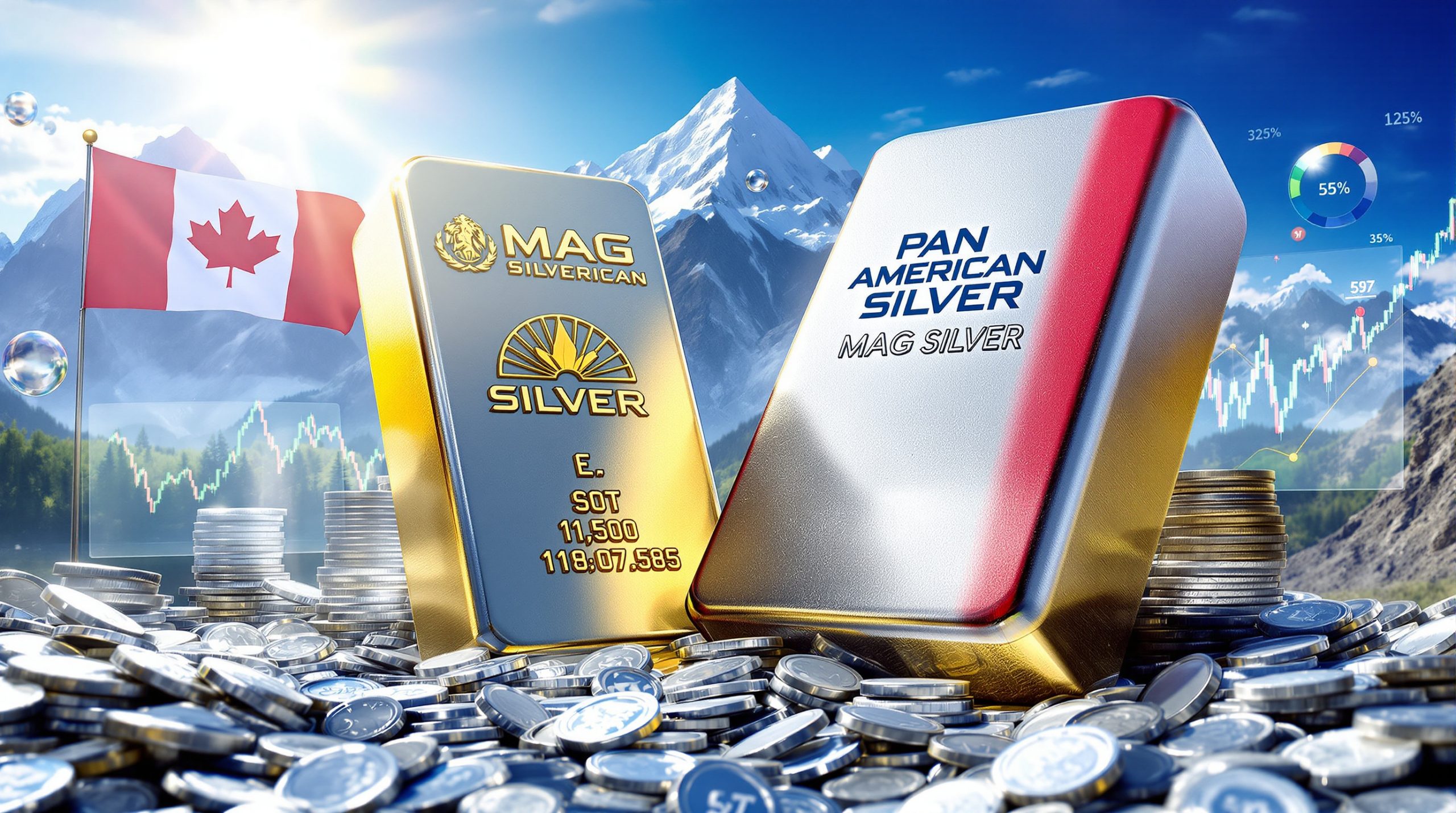Canada-Germany Critical Minerals Partnership: Building Secure Supply Chains
Canada and Germany have formalized a landmark partnership to secure supply chains for critical minerals, establishing a framework for collaboration that addresses both economic opportunities and geopolitical challenges. This strategic alliance comes as demand surges for materials essential to clean energy technologies and advanced manufacturing.
How Canada is Positioning Itself in the Global Critical Minerals Landscape
Canada holds substantial mineral reserves that position it advantageously in the global market for critical minerals. The country ranks second globally for cobalt reserves with approximately 250,000 tonnes, third for lithium reserves with 530,000 tonnes, and maintains significant deposits of rare earth elements crucial for high-tech manufacturing.
The Canadian government launched its Critical Minerals Strategy in December 2022, committing C$3.8 billion in funding over eight years to accelerate exploration, mining, processing, and recycling of critical minerals. This comprehensive approach encompasses regulatory support, infrastructure development, and research initiatives aimed at establishing Canada as a global supplier of choice.
Natural Resources Canada has identified 31 minerals as critical to the country's economic and security interests. These minerals are essential components in technologies ranging from electric vehicle batteries and wind turbines to defense systems and telecommunications equipment.
Canada's strategic positioning also emphasizes responsible mining practices, with strong environmental regulations and commitments to indigenous consultation that align with growing market demand for sustainably sourced materials.
The country's vast landmass, established mining expertise, and political stability provide natural advantages in attracting Canada mining investments for critical mineral development, particularly as manufacturers seek to diversify supply chains beyond traditional sources.
What the Canada-Germany Partnership Entails
The partnership between Canada and Germany represents a comprehensive framework for cooperation on critical minerals supply chains. This bilateral agreement focuses on several key areas of collaboration:
Supply Chain Security
Both nations have committed to identifying and addressing vulnerabilities in critical mineral supply chains, with particular emphasis on materials essential for Canada energy transition technologies and advanced manufacturing.
Research and Development
The partnership establishes mechanisms for joint research initiatives between Canadian and German institutions, focusing on innovative extraction methods, processing technologies, and recycling solutions.
Investment Facilitation
Financial mechanisms will support strategic investments in mining, processing, and manufacturing projects that strengthen supply chains between the two countries.
Regulatory Cooperation
The agreement includes provisions for aligning standards and certification processes to facilitate trade in critical minerals while maintaining environmental and social governance requirements.
Skills Development
Both countries will collaborate on training programs to address workforce needs across the critical minerals value chain, from exploration to advanced manufacturing.
This partnership reflects a mutual recognition of the strategic importance of critical minerals to both economies and a shared commitment to building more resilient supply chains.
Industry Collaborations Driving the Partnership Forward
The government-level partnership has already catalyzed significant private sector engagement, with several major agreements announced between Canadian and German companies:
Mining and Processing Collaboration
Canadian mining companies with advanced exploration projects are connecting with German manufacturers to establish long-term supply arrangements. These agreements often include provisions for technical collaboration on processing methods tailored to specific industrial requirements.
Technology Transfer
German expertise in high-efficiency processing and manufacturing is being shared with Canadian operations, helping to maximize resource utilization and minimize environmental impacts.
Circular Economy Initiatives
Joint ventures are emerging around recycling and reuse of critical minerals, with German companies providing advanced technologies for extracting valuable materials from manufacturing waste and end-of-life products.
Renewable Energy Integration
German renewable energy developers are partnering with Canadian mining operations to reduce carbon footprints and improve sustainability credentials of mineral production.
These industry collaborations demonstrate how the government framework is facilitating concrete business relationships that strengthen economic ties while addressing shared strategic objectives.
Strategic Importance of Critical Minerals
Critical minerals have emerged as strategically vital resources for modern economies, with implications extending far beyond their commercial value:
Economic Significance
Critical minerals serve as foundation materials for high-growth sectors including electric mobility, renewable energy, and advanced electronics. The World Bank estimates that production of minerals like lithium and cobalt will need to increase by nearly 500% by 2050 to meet clean energy demands.
These minerals support manufacturing value chains worth trillions of dollars globally, with the potential to create thousands of well-paying jobs across mining, processing, and manufacturing sectors.
Geopolitical Considerations
Supply concentration presents significant strategic challenges, with production of many critical minerals dominated by a small number of countries. For instance, the Democratic Republic of Congo produces approximately 70% of global cobalt, while China processes roughly 85% of the world's rare earth elements.
This concentration creates vulnerabilities that the Canada and Germany partnership for critical minerals supply chains specifically aims to address through diversification of supply sources and processing capacity.
Environmental and Social Governance
The partnership emphasizes responsible sourcing practices that minimize environmental impacts and respect community rights. This approach aligns with growing market demand for materials produced according to high environmental, social, and governance (ESG) standards.
Both countries are committed to developing certification frameworks that verify sustainability credentials throughout the supply chain, potentially creating market advantages for responsibly sourced materials.
Energy Cooperation Complementing Mineral Partnership
The critical minerals partnership exists within a broader context of energy cooperation between Canada and Germany:
Clean Energy Transition
Both countries have established ambitious climate goals that require substantial transformation of their energy systems. The minerals partnership supports these objectives by securing materials needed for renewable energy technologies and energy storage systems.
Hydrogen Development
Canada and Germany are exploring potential for hydrogen exports from Canada to Europe, with critical minerals playing essential roles in electrolyzers, fuel cells, and related infrastructure.
Research Collaboration
Joint research initiatives are addressing technological challenges across both energy and mineral sectors, including development of next-generation batteries, more efficient solar panels, and advanced manufacturing processes.
This integrated approach to energy and mineral resources reflects growing recognition of the interconnected nature of these sectors in the transition to low-carbon economies.
Global Context and Broader Implications
The Canada-Germany partnership exists within a complex global landscape that shapes its strategic significance:
Shifting Trade Patterns
The partnership represents part of a broader trend toward "friend-shoring" or "ally-shoring" – the realignment of supply chains to prioritize trade with trusted partners sharing similar values and strategic interests.
Multilateral Cooperation
While bilateral in nature, the partnership complements multilateral initiatives including the Minerals Security Partnership involving multiple G7 nations and the European CRM facility outlined in the European Union's Critical Raw Materials Act.
Technology Competition
Access to critical minerals increasingly influences technological leadership in strategic sectors including artificial intelligence, quantum computing, and advanced defense systems. Secure supply chains provide competitive advantages in these rapidly evolving fields.
Climate Policy Integration
The partnership demonstrates how climate policy, industrial strategy, and security considerations are becoming increasingly integrated in international relations, creating new imperatives for cooperation.
Understanding these contextual factors helps explain why both countries have prioritized this partnership despite the significant investments and policy coordination required for its implementation.
Economic Benefits and Opportunities
The partnership creates substantial economic opportunities for both countries while addressing strategic imperatives:
For Canada
The development of critical mineral resources could generate billions in investment and thousands of jobs, particularly in northern and rural communities. The Mining Association of Canada estimates that developing just a portion of Canada's critical mineral potential could create more than 87,000 direct and indirect jobs.
Canadian companies gain preferential access to European markets and potential for technology transfer that enhances productivity and sustainability of operations.
For Germany
German manufacturers secure more reliable access to essential inputs for automotive, renewable energy, and high-tech manufacturing sectors that represent core strengths of the German economy.
The partnership provides opportunities for German companies to deploy advanced technologies in extraction, processing, and recycling, creating new export markets for German engineering expertise.
Shared Benefits
Both countries benefit from reduced supply chain vulnerabilities and potential cost advantages from more efficient logistics and regulatory alignment.
The partnership creates platforms for innovation that could yield new technologies with applications beyond the immediate focus on critical minerals.
Implementation Challenges and Considerations
Despite its promising framework, the partnership faces several significant challenges in implementation:
Project Development Timelines
Mining projects typically require 5-10 years from discovery to production, creating tensions with the more immediate demand for critical minerals. Streamlining permitting processes while maintaining environmental standards presents ongoing challenges.
Infrastructure Requirements
Many promising mineral deposits are located in remote regions with limited transportation, energy, and communications infrastructure. Developing this supporting infrastructure requires substantial investment beyond the direct mining operations.
Financing Mechanisms
Critical mineral projects often face financing challenges due to price volatility, technical complexity, and extended development timelines. New financing instruments may be needed to bridge the gap between strategic importance and commercial viability.
Technical and Workforce Capacity
Specialized technical expertise is required across the value chain, from geological assessment to advanced processing. Both countries need to invest in education and training programs to address potential workforce shortages.
Regulatory Harmonization
Differences in regulatory frameworks between jurisdictions can create compliance challenges for companies operating across borders. Ongoing work is needed to align standards while maintaining appropriate safeguards.
Addressing these challenges will require sustained commitment from both governments and continued engagement with industry stakeholders, indigenous communities, and civil society organizations.
Looking Forward: Indicators of Success
The long-term success of the Canada-Germany partnership will be measured against several key indicators:
Supply Chain Resilience
Reduced concentration of critical mineral supplies and processing capacity, with more diverse and redundant supply chains that can withstand disruptions.
Investment Growth
Increased capital flows into exploration, extraction, processing, and manufacturing facilities across both countries, creating sustainable economic benefits.
Technology Development
Advancement of innovative technologies that improve efficiency, reduce environmental impacts, and enhance competitiveness of the critical minerals value chain.
Market Development
Growth in trade volumes between Canada and Germany in critical minerals and downstream products, demonstrating commercial viability of the strategic partnership.
Environmental Performance
Improved sustainability metrics across the supply chain, including reduced carbon intensity, water usage, and waste generation compared to traditional sources.
Progress in these areas would validate the strategic vision behind the partnership and provide a model for similar arrangements between like-minded countries seeking to secure critical mineral supply chains.
Broader Implications for International Cooperation
The Canada-Germany partnership may serve as a template for similar bilateral and multilateral arrangements focused on critical minerals:
Resource Diplomacy Evolution
The partnership represents an evolution in resource diplomacy, moving beyond traditional buyer-seller relationships to more integrated approaches that encompass research, regulation, and workforce development.
Values-Based Supply Chains
By emphasizing environmental and social governance alongside economic considerations, the partnership contributes to the development of values-based supply chains that align with broader policy objectives.
Public-Private Coordination
The framework demonstrates effective coordination between government policy and private sector investment, creating enabling conditions for market-driven solutions to strategic challenges.
As more countries recognize the strategic importance of critical minerals, similar partnerships may emerge as essential components of economic security and industrial strategy in a rapidly changing global landscape.
Conclusion
The Canada-Germany critical minerals partnership represents a significant evolution in how countries approach resource security in an era of technological transformation and geopolitical competition. By combining strategic vision with practical mechanisms for cooperation across government, industry, and research sectors, the partnership offers potential solutions to complex supply chain challenges.
While implementation challenges remain substantial, the framework provides a foundation for long-term collaboration that could yield benefits extending far beyond the immediate focus on critical minerals. As the partnership develops, it may offer valuable lessons for other countries seeking to navigate the intersection of resource policy, industrial strategy, and international relations in an increasingly complex global environment.
The North American mining trends influenced by this partnership point toward a significant reshaping of global mineral markets, potentially creating new 2025 investment opportunities for those positioned to capitalize on this strategic shift in international supply chains.
Disclaimer: This article contains analysis of potential future developments in critical minerals markets and international trade relations. These assessments involve inherent uncertainties, and actual outcomes may differ significantly from those discussed. Readers should consult multiple sources and qualified advisors before making investment or policy decisions based on this information.
Want to Capitalise on the Next Major Mineral Discovery?
Discover how you can gain immediate access to significant ASX mineral discoveries as they happen with Discovery Alert's proprietary Discovery IQ model, transforming complex mineral data into actionable investment insights. Understand why historic discoveries can generate substantial returns by visiting Discovery Alert's dedicated discoveries page and begin your 30-day free trial today.




